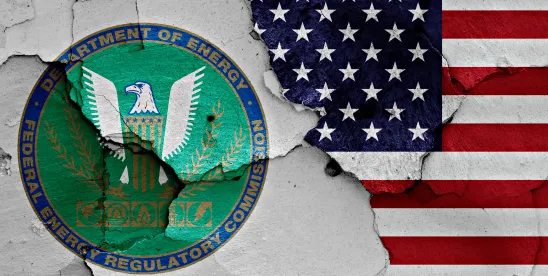On July 30, 2024, the D.C. Circuit Court of Appeals in New Jersey Conservation Foundation, et al. v. FERC vacated FERC’s order approving Transcontinental Gas Pipe Line Company (Transco)’s Regional Energy Access Expansion Project. This project involves the construction and operation of approximately 36.1 miles of new natural gas pipeline facilities, including 22.3 miles of 30-inch-diameter lateral pipeline and 13.8 miles of 42-inch-diameter loop pipeline, as well as a new compressor station and modifications to existing stations, running through New Jersey, New York, Delaware, Maryland, and Pennsylvania. The project is designed to expand natural gas delivery capacity by 829,400 dekatherms per day. This blog post explores three notable aspects of the court’s opinion.
Significance Determination
First, the court faulted the Federal Energy Regulatory Commission (FERC) for not making a significance determination regarding the environmental impact of the project’s greenhouse gas (GHG) emissions. This decision is consistent with the court’s ruling in the recent Healthy Gulf, et al. v. FERC, which similarly criticized FERC’s failure to adequately assess the environmental significance of GHG emissions. Distinguishing New Jersey Conservation Foundation from another recent case, Food & Water Watch v. FERC, which found FERC did not have to make a significance determination, the court emphasized that “even if FERC is not required to make a significance determination, choosing not to do so on the basis of an arbitrary and capricious explanation is nevertheless a violation of the APA.” (See our July 2024 blog post for additional discussion of these recent cases.) In support of its opinion, the court noted that in a prior case involving the Northern Natural Gas pipeline, FERC was able to make a case-specific significance determination yet “provides no justification for why it cannot determine significance here.” This underscores the need for FERC to provide a clear and reasoned explanation when it opts not to make a significance determination, aligning with the court’s ongoing insistence on thorough environmental reviews. For gas pipeline and liquid natural gas project developers, the New Jersey Conservation Foundation opinion reflects the continuing uncertainty and potential delay created by environmental appeals of FERC orders approving projects.
Market Need and Precedent Agreements
The court also held that precedent agreements (PAs) signed by local distribution companies (LDCs) were insufficient to establish market need for the Transco project. Instead, the court relied on a New Jersey study that concluded there was already more than enough pipeline capacity to meet demand. This is a significant departure from previous decisions in which PAs, including those signed by LDCs, were typically deemed sufficient to demonstrate market need. The court’s reliance on a state study over PAs indicates a shift toward requiring more comprehensive and localized evidence of market demand, potentially setting a new standard for how FERC must evaluate project necessity.
Vacating FERC’s Order
Finally, the court decided to vacate FERC’s order approving the Transco project instead of merely remanding the case to FERC. Typically, when the court finds FERC’s National Environmental Policy Act (NEPA) analysis insufficient, it remands the case for FERC to perform the required analysis without vacating the order, allowing the project to proceed while additional reviews are conducted. However, in this instance, the court vacated the order because it could not find that it was sufficiently likely that FERC “will be able to substantiate its decision on remand.” The court noted the deficiencies in FERC’s market need determination, which, in turn, impact FERC’s ultimate responsibility to balance the public interest under the Natural Gas Act (NGA) Section 7.[1] The court’s vacatur raises the stakes of court reversals of FERC project authorizations.
Takeaways
This case may create additional uncertainty through its ruling that FERC failed to adequately consider the significance of GHG emissions under NEPA, and its ruling on market need affects how FERC may balance the public interest in determining whether to approve projects under the NGA. Until FERC updates its 1999 Certificate Policy Statement, a guidance document that outlines the principles used to evaluate whether a proposed natural gas project serves the public interest under the NGA, project developers face the risk of court remand or vacatur of FERC orders approving their projects.
[1] NGA Section 7 requires entities to obtain a certificate of public convenience and necessity from FERC before constructing or extending facilities for the transportation of natural gas in interstate commerce. This section mandates FERC to evaluate the project’s impact on the public interest, balancing market need, environmental impact, and economic benefits. See 15 U.S.C. § 717f.





 />i
/>i


